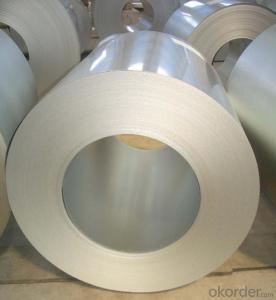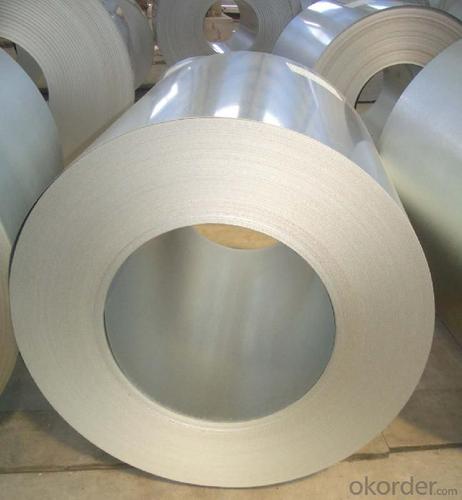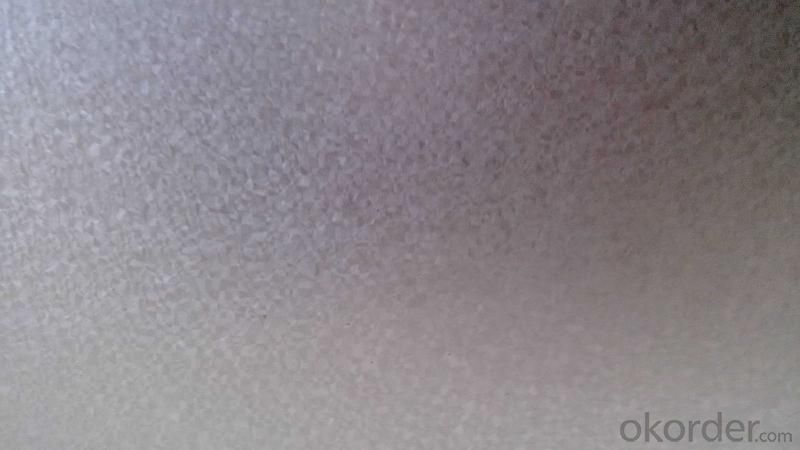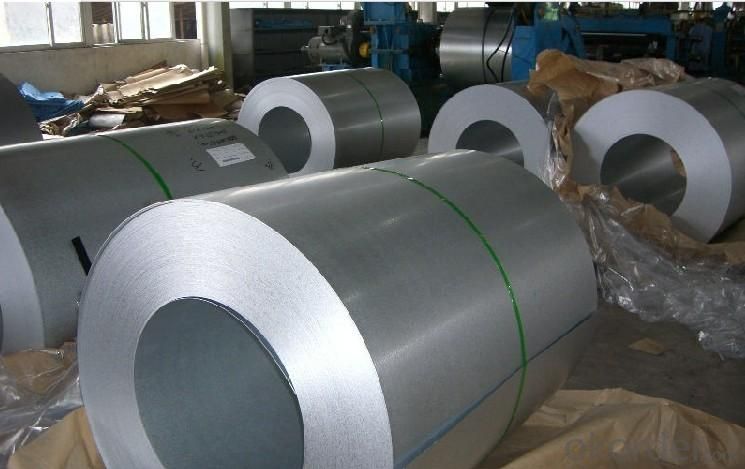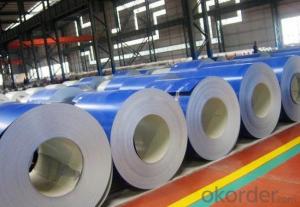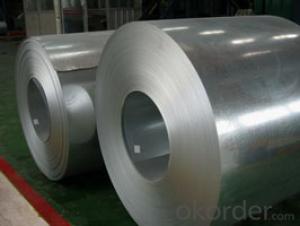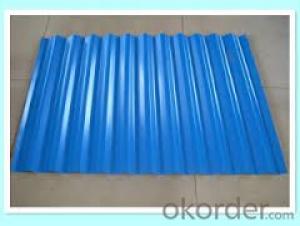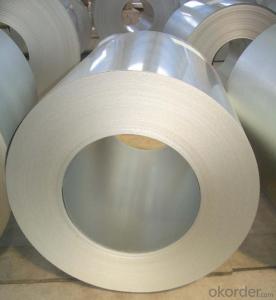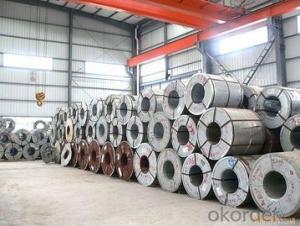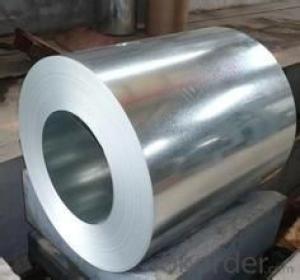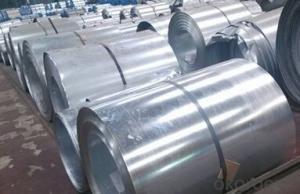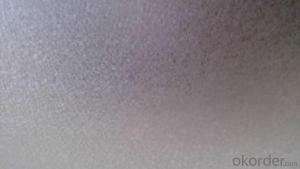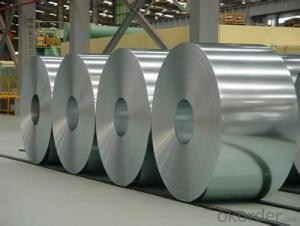Hot-dip Aluzinc Steel Building Roof Walls 1250mm max
- Loading Port:
- China main port
- Payment Terms:
- TT or LC
- Min Order Qty:
- 50 m.t.
- Supply Capability:
- 10000 m.t./month
OKorder Service Pledge
OKorder Financial Service
You Might Also Like
Hot-dip aluzinc steel has many excellent features: strong corrosion resistance, is three times the pure galvanized sheet; zinc surface with beautiful flowers, can be used as a building outside board.
1.Applications of hot-dip aluzinc steel:
1)Building: roof, walls, garages, soundproof walls, pipes and modular housing.
2)Automotive: muffler, exhaust pipes, wiper accessories, fuel tank, truck boxes, etc.
3)Appliances: refrigerator back, gas stove, air conditioners, microwave oven, LCD frame,
4)CRT-proof band, LED backlight, electrical cabinets, etc.
2.Main Features of hot-dip aluzinc steel:
• Excellent corrosion resistance
• High temperature oxidation resistance
• High hot reflectance
• Good manufacturability
3.Hot-dip Aluzinc Steel Images
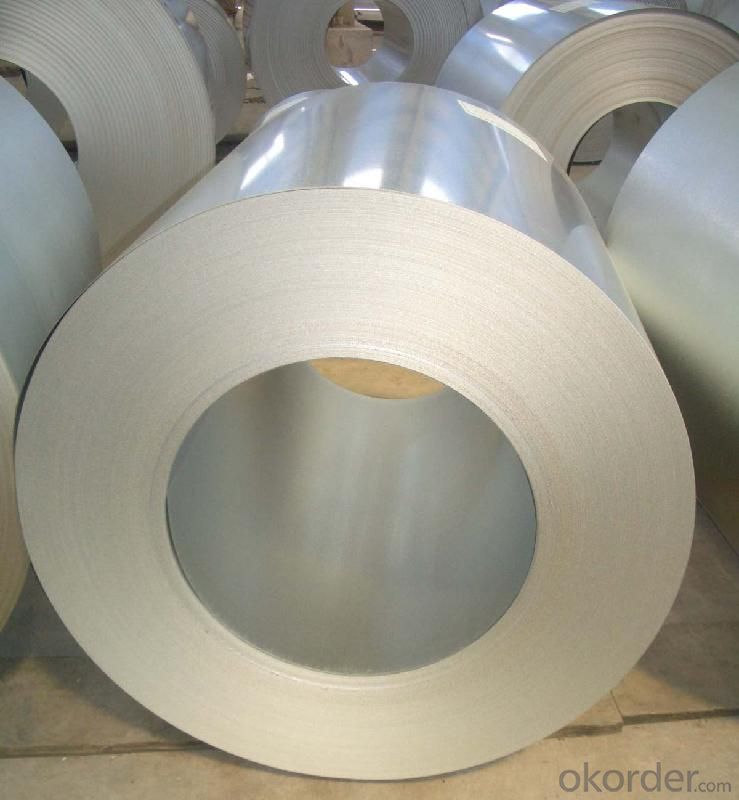
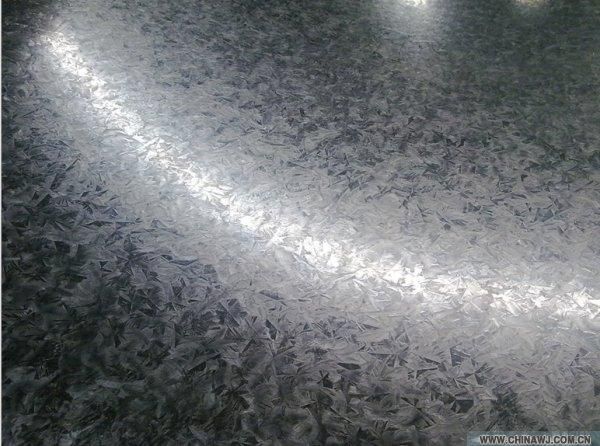
4.Hot-dip Aluzinc Steel Specification
AVAILABLE SPECIFICATION | HOT-DIP ALUZINC STEEL COILS |
THICKNESS | 0.16mm-3.5mm |
WIDTH | 1250mm MAX |
COATING MASS | 30g/ m2-185 g/ m2 |
SPANGLE | Regular Spangle, Minimized Spangle, Zero Spangle |
SURFACE TREATMENT | Chromated / non-chromated, Oiled / non-oiled, Anti Finger Print |
COIL INNER DIAMETER | 508mm or 610mm |
5.FAQ of hot-dip aluzinc steel
1.What advantages does your company have?
Cement : Annual capacity of 400 million tons, No. 1 in the world
Fiberglass: Annual capacity of 1 million tons fiberglass, No. 1 in the world.
Glass: CNBM owns about 20 modern float glass product`ion lines, With annual capacity of 10 million square meters glass.
2.What advantages do your products have?
Firstly, our base material is of high quality, Their performance is in smooth and flat surface,no edge wave ,good flexibility.
Secondly, high quality zinc ingoats, 97.5% zinc,1.5% silicon,1% others, the same zinc coating measured by metal coating thickness or by zinc weight
Thirdly, high precision: Tolerance strictly according to ASTM or JISG standard even more rigid.
- Q: How do steel coils contribute to the renewable energy equipment industry?
- Steel coils contribute to the renewable energy equipment industry by playing a crucial role in the manufacturing of various renewable energy components. They are used to create structural frames, support structures, and brackets for wind turbines, solar panels, and other renewable energy systems. Additionally, steel coils are essential in the production of electrical transformers and transmission lines, which are integral to the distribution of renewable energy. Overall, steel coils provide the strength, stability, and durability required for the efficient and long-lasting operation of renewable energy equipment.
- Q: i'm looking into pedal steel guitars, and I would like some suggestions or links and info on what kind i should get.
- Try okorder -The Art of Steel Guitar/ Steel guitar players -Take it away Leon- McAuliffe and 'Speedy West' were a couple greats. In the late '50s, Speedy was playing a Fender 1000 Pedal steel. He often did duets with Jimmy Bryant The Fastest Guitar Player In The Country! / note also the 'Emmons Guitar Company':
- Q: How are steel coils used in the production of marine vessels?
- Steel coils are extensively used in the production of marine vessels due to their strength, durability, and versatility. These coils are typically made of high-quality steel, which is known for its ability to withstand harsh marine environments and resist corrosion. One of the primary applications of steel coils in the production of marine vessels is for the construction of the hull. The steel coils are formed into plates, which are then welded together to create the hull structure. The strength of these coils ensures that the hull can withstand the extreme forces and pressures experienced during a vessel's operation, including rough seas and heavy cargo loads. Additionally, steel coils are used in the production of various components and fittings within a marine vessel. These coils can be shaped, cut, and formed into different parts, such as bulkheads, decks, and superstructures. The versatility of steel allows manufacturers to create complex shapes and structures that are essential for the efficient and safe operation of a marine vessel. Moreover, steel coils are also used for the fabrication of pipes and tubing systems within marine vessels. These pipes are crucial for various functions, such as transporting fluids, fuel, and ventilation throughout the vessel. The strength and corrosion resistance of steel coils ensure that these pipes can withstand the high pressures and corrosive nature of marine environments. Furthermore, steel coils are utilized in the production of marine vessel equipment, such as winches, cranes, and anchor systems. These components require a high-strength material that can withstand heavy loads and constant use. Steel coils provide the required strength and durability to ensure the reliable performance of these critical equipment. In conclusion, steel coils play a vital role in the production of marine vessels. Their strength, durability, and versatility make them an ideal material for constructing the hull, manufacturing various components, fabricating piping systems, and creating equipment. The use of steel coils ensures the safety, efficiency, and longevity of marine vessels, enabling them to navigate the challenging conditions of the open seas.
- Q: So what's harder gold or steel
- steel. it's used to support skyscrapers lol. gold can be molded easily into jewelry. although both gold and steel are both malleable, steel is harder to shape.
- Q: Why is steel so important? How does it help us in everyday life?
- steel comes from iron. Iron is a natural resource and is abundent in nature. so being able to turn it into steel means it can be used for alllll sorts of things! from buildings, cars, piping and tubes, to washing machines, appliances and many other things. its used in our everyday life and is a great, strong material.
- Q: What are the main factors that affect the paint adhesion on steel coils?
- The main factors that affect paint adhesion on steel coils include surface preparation, cleanliness, and the presence of contaminants such as oil, grease, or rust. Other factors include the quality of the paint itself, the application method, and the curing process. Additionally, the type of steel and its surface condition can also influence paint adhesion.
- Q: Okay, I have looked all ovcer the net and it says diamonds are stronger, but why? I mean, why is diamonds used for the top equiptment rather than steel?
- Diamonds okorder
- Q: What are the different packaging options for steel coils?
- There are several packaging options for steel coils, including wooden crates, steel frames, and metal or plastic bands. These packaging options help to protect the coils during transportation and storage, ensuring their integrity and preventing damage.
- Q: What are the different surface finishes available for steel coils?
- There are several different surface finishes available for steel coils, including hot rolled, cold rolled, galvanized, coated, and painted finishes. Each finish has its own unique properties and benefits, such as improved corrosion resistance, enhanced aesthetic appeal, or increased durability. These different finishes allow manufacturers to meet specific requirements and applications for steel coils in various industries.
- Q: Can steel coils be recoiled?
- Yes, steel coils can be recoiled. Recoiling involves rewinding a coil of steel to a smaller diameter, often to improve handling and transportation.
Send your message to us
Hot-dip Aluzinc Steel Building Roof Walls 1250mm max
- Loading Port:
- China main port
- Payment Terms:
- TT or LC
- Min Order Qty:
- 50 m.t.
- Supply Capability:
- 10000 m.t./month
OKorder Service Pledge
OKorder Financial Service
Similar products
Hot products
Hot Searches
Related keywords
